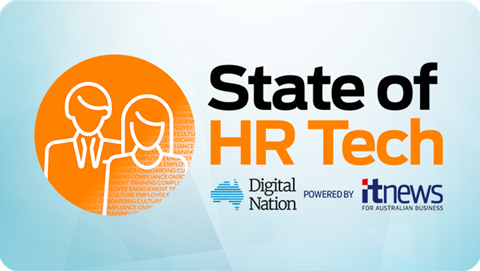It is heart-warming to see the extent that organisations are applying a digital mindset to develop solutions that tackle environmental challenges through adopting environmental, social and governance (ESG) strategies.

Social refers to organisations enhancing relationships with their customers, partners, employees, and communities to improve the overall social impact they create and foster.
Social factors may seem of less importance than environmental and governance issues, which have traditionally been at the forefront of investors’ minds, yet the opportunities to transform for social good are just as valuable.
The health and well-being of an organisation’s relationships within its supply value chain is a crucial influence on its success and investment potential.
Issues such as an organisation’s position on racial and gender equality, or how fairly it treats its labour force, are changing the way an organisation’s brand is perceived and influencing investment in the process.
For stakeholders in the property industry, Covid reinforced the genuine need for property owners and employers to consider the social impact of place on the people and communities who use them.
Digital transformation can enhance the agility, speed, and data-driven decision-making organisations apply when improving social outcomes in areas such as diversity, human rights and consumer protection.
Innovation and agility are seen as the great benefits of diversity, and there is an increasing awareness of the power of difference. Human rights are a wide area of concern which includes the impact on local communities, the health and welfare of employees and a more thorough examination of a company's supply chain.
In recent times, there has been an increased assumption that the consumer has a right to a degree of protection and the vast growth in damages litigation has meant that consumer protection is a central consideration for those seeking to limit a company's risk and those examining a company's credentials with an eye to investing.
Three simple actions to help enhance the social impact of an organisation digitally are to implement long-term performance monitoring; conduct predictive risk assessments and; simplify data collection across the supply value chain.
When investors analyse the potential profitability of investing in a particular organisation, they pay attention to long-term performance, analysing historical data sets, revealing performance trends, and making predictions for the long run.
Digital monitoring of employee safety and health, working conditions, diversity, equity, and inclusion, are relevant in determining whether organisations are enhancing (or destroying) customer satisfaction and employee engagement.
Social actions may impact organisational performance, the environment, or the community in a harmful way. Predictive digital solutions can simulate the impacts of socially impactful decisions to determine the right course of action before taking it.
Social data comes from many different sources within the supply value chain and needs to undergo clear classification and smart analysis to become valuable. AI-powered digital solutions allow data to be consolidated in a single place, improving transparency and accessibility.
Digitally addressing these three simple areas can help generate a number of improved social outcomes.
Enhancing social outcomes
Digital technologies enable organisations to engage with stakeholders more effectively than ever before. Digital tools like social media, online forums and chatbots allow organisations to connect with customers, employees, suppliers, and other stakeholders in real time.
This increased engagement can help organisations to better understand the needs and expectations of their stakeholders and respond more quickly to any issues that arise. It can also help build trust and loyalty among stakeholders, which can positively impact the brand, reputation and bottom line.
Digital monitoring is making it easier for organisations to be transparent about their social impact by collecting and analysing data on their social performance and sharing this information with stakeholders in real time.
This can help build trust and confidence among stakeholders, as they see the impact the organisation is having on society. It can also help to identify areas where organisations can improve social performance, leading to better decision-making.
Digitally enabled supply chains are having a significant impact on better social outcomes. Organisations can monitor their supply chains in real time, from the source of raw materials to the final product. They can identify and address social issues such as forced labour, child labour, modern slavery and human rights violations.
This can also ensure that suppliers are meeting social and environmental standards.
Digital engagement is having a significant impact on employee engagement. Organisations can digitally provide employees with real-time feedback, training, and development opportunities that help improve employee morale and productivity.
Digital engagement can also help to attract and retain top talent, which is essential for the long-term success of any company. Digitally monitoring the elements within a workspace that influence employee health, well-being and experience presents a valuable opportunity to gather relevant data to steer change towards a better workplace.
A sense of community and togetherness is an essential social factor. Digital engagement is designed to enhance work-life balance.
Uplifting digital inclusion
One of the greatest impacts that can be made digitally to improve social outcomes is to enhance digital inclusion within an organisation’s supply value chain. Digital inclusion involves the activities necessary to ensure equitable access to and use of products and services.
Digital inclusion includes access to affordable internet services, internet-enabled devices, access to digital literacy training, quality technical support, and applications and online content designed to enable and encourage self-sufficiency, participation, and collaboration.
Physical access to digital technologies and the internet continues to be a barrier to digital inclusion for many. Digital ability and attitude are also potential barriers. Education is a key enabler for digital inclusion as engaging with organisations is requiring ever-increasing levels of digital competence.
Lifelong learning is required as technologies, services and systems are changing constantly. Designing for digital inclusion may also help with poorly written literacy, which remains a barrier for 10 percent of the world's population.
Lendlease is committed to creating positive social outcomes for communities wherever we operate and beyond.
Lendlease currently tracks the social activities of our projects across three metrics within its digital solution, Footprint. These are skilling/training, volunteering and employment. The company believes that these metrics improve Lendlease’s stakeholder engagement and increase its actions' transparency.
Digital transformation is evolving the social aspect of ESG. As these technologies continue to evolve, it will be interesting to see how organisations continue to leverage them to improve their social impact and contribute to a more sustainable future.
Colin Dominish is the head of podium services at Lendlease Digital. He is a customer-first digital native with over thirty years of experience in bringing the best digital solutions and expertise from around the world and applying them to infrastructure projects.



_(20).jpg&h=140&w=231&c=1&s=0)
_(23).jpg&h=140&w=231&c=1&s=0)




_(26).jpg&w=100&c=1&s=0)

 iTnews Executive Retreat - Security Leaders Edition
iTnews Executive Retreat - Security Leaders Edition











_(1).jpg&h=140&w=231&c=1&s=0)



